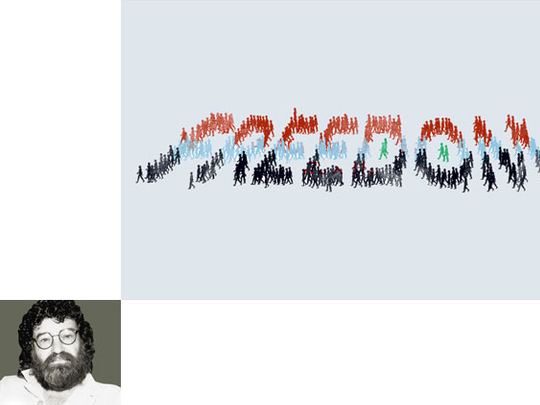
A human community, the French philosopher Alexis de Tocqueville remarked in his commentary on the French revolution, will endure a grievance for so long, but once the possibility of removing that grievance crosses men's minds — at a mysterious tipping point in social life — it becomes intolerable. History then is everyman's domain, empowering ordinary people with an extraordinary capacity to wrest control of their destiny from those who had deflected it from its rightful course.
That was true of the French revolution at the time, and is equally true of the Syrian revolution today.
The regime in Damascus is on the brink, repudiated by its own citizens and much of the Arab world. Given the vehemence of the mass discontent demonstrated by the opposition, a return to the status quo ante in Syria is now mockingly remote. To say that the days of Baathist rule in that country are numbered should not appear as an over-wrought observation.
What went wrong? Why has it come to this?
When the Baath Party held its first congress in 1947 — and seized political power in 1963 — its leaders were heir to a social ideology imbued with moral, if overly simplistic, optimism about the Arab future. Its founder, Michel Aflek, looked forward to building a community of laws and institutions, and a united Arab nation. All well and good, for at the time nothing was more rooted in the collective Arab psyche, or more related to its quest for national meaning than the call for social justice and unity of the Arab peoples by one ideology within a single territorial homeland.
What later transpired in Syria was a farce, a cruel farce to be sure, but a farce nevertheless. The regime that took power soon showed its true colours. The incumbent president's father, Hafez Al Assad, who ruled the country for almost 30 years, presided over a one-party sclerotic system plagued by nepotism and corruption, repression and fear. With its anaemic economy in shambles, and its people subjected to constant doses of coercion and violence, Syria produced not only alienated social critics who braved the threat of incarceration in order to speak and write freely, but violent Islamists as well. After massacring well over 10,000 of the latter in one swoop in the city of Hama in 1982, the government introduced the so-called Law 49 that made membership of the Muslim Brotherhood punishable by death. Adhering to a drab version of Baathist ideology was determined to be the cog and screw in the juggernaut of the regime.
Talented thinkers, along with ordinary folk, gasped for breath under such intrusive control of their social existence. A corrosive ennui set in, sapping Syria of social elan.
Discussion groups
When the "Iron Man", as Hafez was known, died in 2000, his 34-year-old opthalmologist son, Bashar, took the reigns of power. In his inauguration speech, the young Al Assad spoke of how Syrians should "accept the opinion of others", kicking off the so-called "Damascus Spring", a time when "discussion groups" popped up everywhere to address a host of Syria's political and social problems, with participants hoping to promote certain ideas and causes that would influence public policy.
Promising, no? Sorry, not in Syria. Not even under the young, seemingly cultivated new president. The Syrian people's plea for a live, humane social order, where literacy of discourse is a precondition to sane judgment in human affairs, went unheeded. The discussion groups were outlawed and many of the members were hunted down, tried and given long prison sentences.
Fast forward to March 2011. I say to understand the Syrian revolutionary uprising it is necessary to understand the social and political background against which it took place, as it is necessary to understand the repressive nature of the regime that is today fighting tooth and nail to suppress it — even at the dreadful cost, so far, of close to 4,000 men, women and children killed in the streets by the regime's military forces and security goons. The crackdown on dissent is countrywide, with mass arrests, attacks on funeral processions, torture in detention, deaths in custody and other kinds of outrage that clearly constitute crimes against humanity. Is it any wonder that of the 22 member states of the Arab League, 18 voted last week to suspend Syria from the organisation?
It is now a long, grim duel between the people of Syria and the regime that they have repudiated. Their uprising is organically linked to, indeed partnered with, the wider Arab Spring — or the Arab Awakening, as we perhaps should begin to call it, an awakening that soon will alter the contours of the first half of this Arab century. Syrian officials will continue to rail against the "armed gangs" who are backed and funded by "foreign elements", but the spectacle of (so far) unarmed demonstrators braving the regime's repression gives such a myth the lie. These are people on the march. And when people are driven to go on the march, they are, rhetoric aside, unstoppable. In the Long March of 1934, an epic test of human endurance, Mao Tse-Tung and his 100,000 strong peasant army, choosing to battle against the Nationalists as well as the elements, travelled 6,000 miles, over 18 mountain ranges and across 24 rivers, with only 7,000 men surviving the ordeal, in order to reach their destination and finally achieve their goal.
Resistance
And four years earlier, in 1930, in order to help free India from British rule, Mahatma Gandhi organised the Salt March, a 240-mile, 24-day-long journey to the coast of Dandi in Gujarat state, with large numbers of Indians dedicated to non-violent resistance, known as the satyagrahis, joining him along the way. The Indian independence movement was born and its terminus was freedom from foreign imperial control.
The Syrian people too are, in like manner, on the march.
Don't mess with marching people, Al Assad, not after the possibility of removing a grievance has crossed their minds.
Fawaz Turki is a journalist, lecturer and author based in Washington. He is the author of The Disinherited: Journal of a Palestinian Exile.








